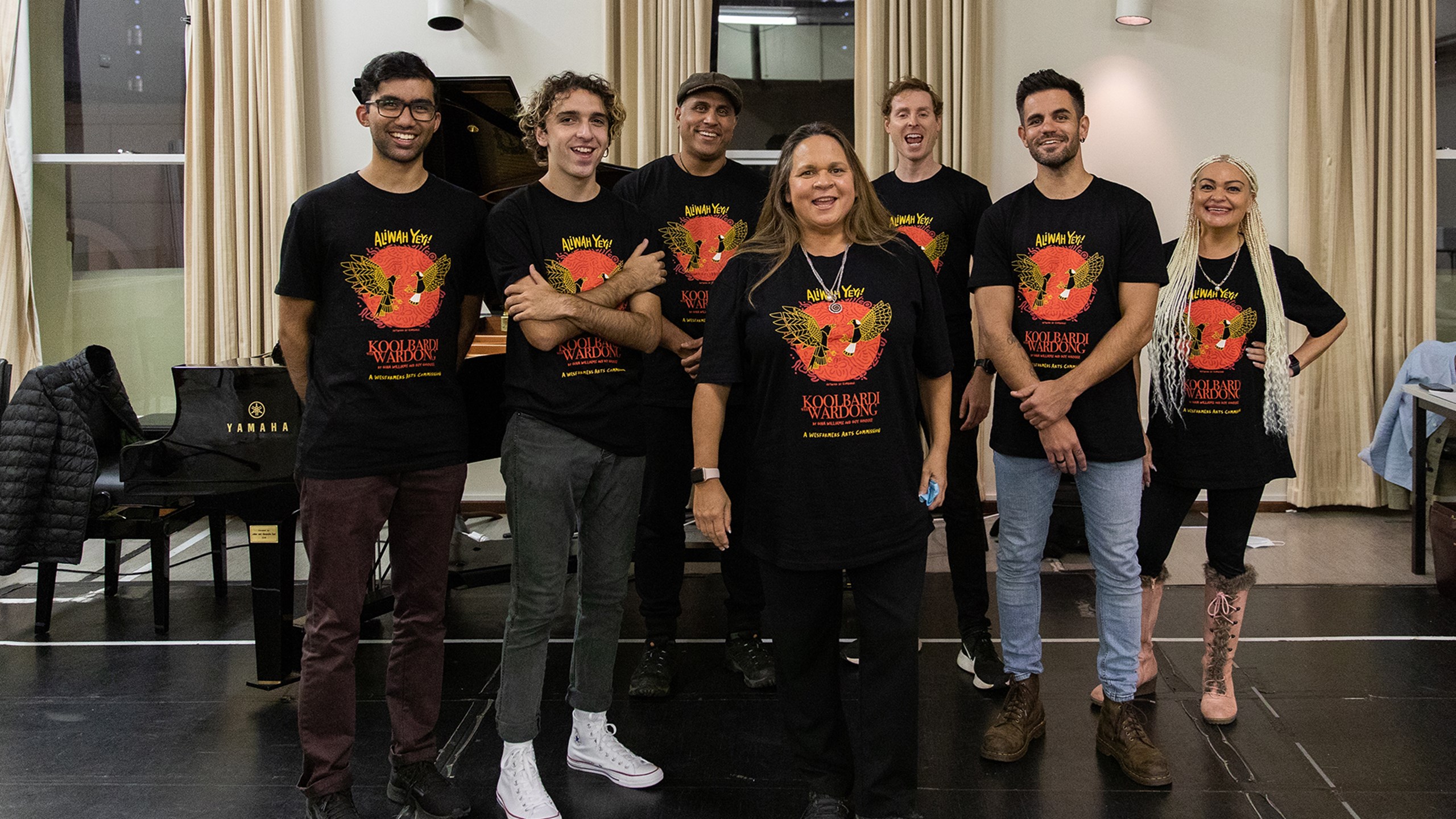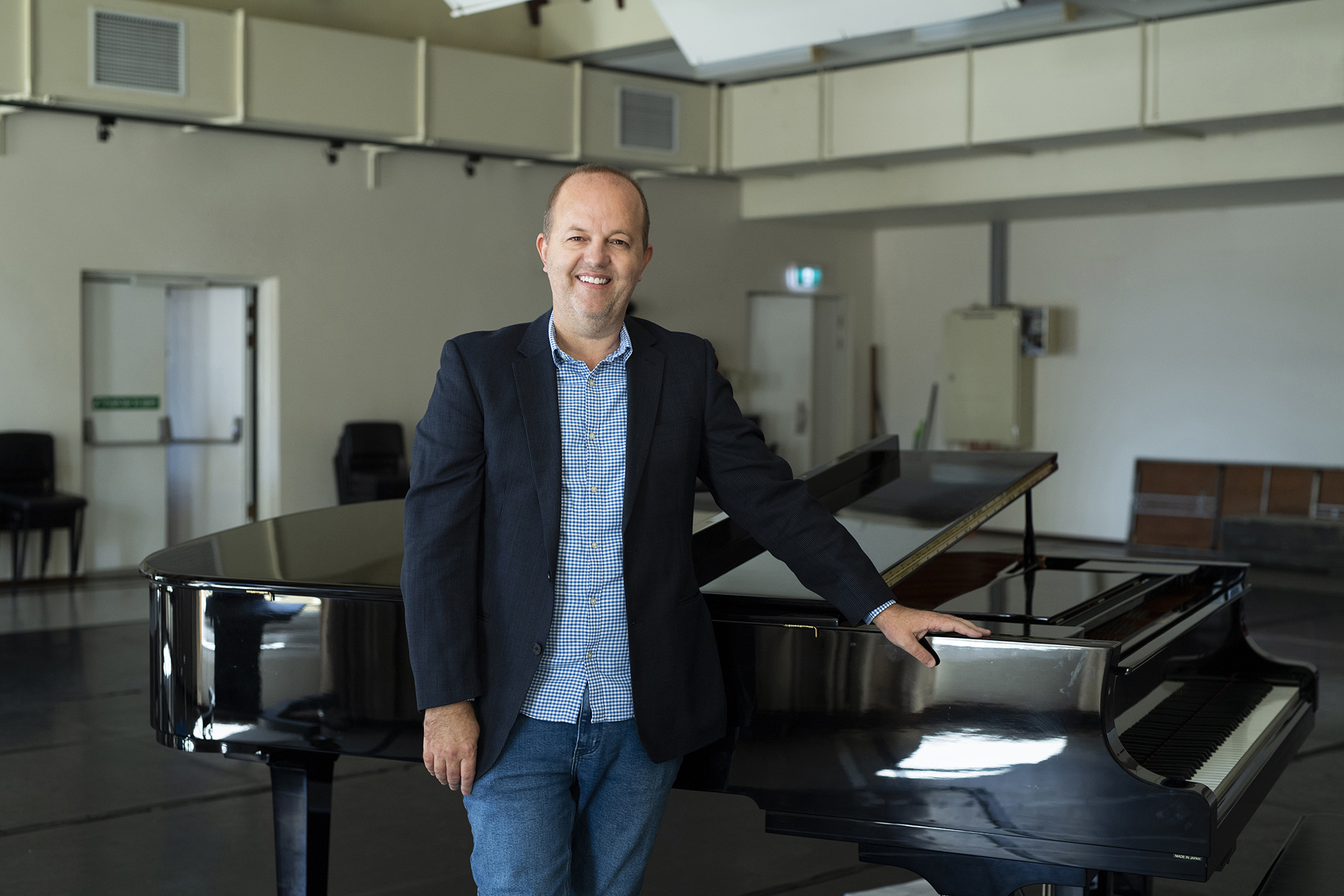Be Brave. Make Change.
In acknowledgement of National Reconciliation Week, West Australian Opera speaks with the creators of the world's first Noongar language opera Koolbardi wer Wardong, Gina Williams and Guy Ghouse, about bringing this important new work back to the stage.
Koolbardi wer Wardong is a Wesfarmers Arts commission that first premiered in October 2021 at His Majesty's Theatre, Perth.
The theme for this year’s National Reconciliation Week is “Be Brave. Make Change”. As composers of the first Noongar opera and passionate advocates for the legacy of language, how does that message speak to you?
One of the biggest life lessons we can learn is to be brave. So often we run these mental gauntlets, have these lists of reasons why we can’t do something, why we shouldn’t do something, and that in itself can be detrimental. We worry about what people might think, when most of the time others are caught up in their own struggles and aren’t giving us a second thought.
Bravery is not the absence of fear, it is understanding the risk and doing it anyway. It’s finding what it is that makes our hearts beat a little faster and pursuing that – this is how we affect change.
The question begs “why has it taken so long for the language of this land to be recognised in this high artform, when Noongar people have been singing and telling stories longer than any theatre has?” In this instance we feel WAO have demonstrated incredible bravery in taking a leap of faith.
Another important lesson is that we don’t need to have all the answers before embarking on new things. If anyone had told us we would one day write an opera, we would never have believed it.
But we didn’t start with an opera, we started making art simply by writing songs. We wrote some songs, then we did an album, then we just kept going.
We’ve been working together for 15 years, and most of that has been writing songs in language. Even now, it’s overwhelming to think of what’s possible, so we don’t do that. We just focus on making art and staying the course of celebrating one of the most beautiful languages in the world, a language which has been held for 3000 generations.
Koolbardi wer Wardong will soon spread its wings on tour to regional Western Australia with local children’s choruses being coached to sing in language. With National Reconciliation Week in mind, why is this work so important to you? What does it mean for you to be able to empower young people to sing in Noongar?
Koolbardi wer Wardong is a West Australian story, and something we can all share because we all call this place home. And this language is a big part of that. This is Australian history, and we all can learn this, regardless of where we come from or what our stories otherwise might be. It’s never about what separates us, it always needs to be what connects us.
But it’s more than that. You cannot separate language from culture, so if you want to learn something truly meaningful about a group of people you only need to look to their language. Here, in this place, if you learn language you will also learn about what matters to us. Our connection to country, our place in community and our responsibility to these things. Simple things like the plants and trees, the animals and the seasons. How we cared for country and how country kept us. We come to understand ourselves and our place in this landscape when we learn the language.
Once upon a time everybody who lived in this place spoke the language of the land. It would have been amazing. Nowadays we don’t have a lot of recognised fluent speakers, so it’s important (even in a modern context) we find ways to share language. To preserve it and ensure it is secured for all future generations. And while we set about doing that, we should work with our youth to empower them to step into this in the future.
Which Noongar word/s captures the essence of Koolbardi wer Wardong?
Aliwah yeyi! Look out now! Is a great start. We love the names of the principles as well. They’re onomatopoeic words – they sound like what they represent. Djidi Djidi (Willy Wagtail) makes that “chitty chitty” sound when he puffs up, Waaaaaardong sounds just like the call of the crow, and Koolbardi sounds like the magpie’s warble.
The word (and song) Boorda means “soon.” It was once explained to me that we don’t say goodbye, because it’s our belief that we continue to cross paths from this life well into the next, and we hold onto the hope that we will cross paths again in this life, “soon.” I love that in the context of Koolbardi. Even though the brothers never reconcile, we are always left in the hope of what is possible. It’s bittersweet.
If you were to ask me about my favourite line in the entire production, it’s found in the second last line of the last song, Kedalak Baal Koorliny (Evening is Coming), which (translated) says “And all of us, we hold onto most beautiful dreams.”
What role does music and art play in reconciliation?
You don’t have to agree with a person’s politic to enjoy beautiful art.
For audiences discovering Koolbardi wer Wardong as it tours to Albany, Kalgoorlie and Esperance, what would you like them to take away from the performance?
We hope the young people performing in each of these productions will come away feeling inspired enough to one day write their own works. We hope the communities we visit, especially the elders who see this work feel honoured and we hope the broader community embrace the idea of learning about the history of place before settlement. We hope everyone comes away with a desire to learn language and walk together in hope and healing.
National Reconciliation Week is celebrated from 27 May – 3 June 2022. Click here to discover more about Koolbardi wer Wardong’s tour across regional Western Australia.


